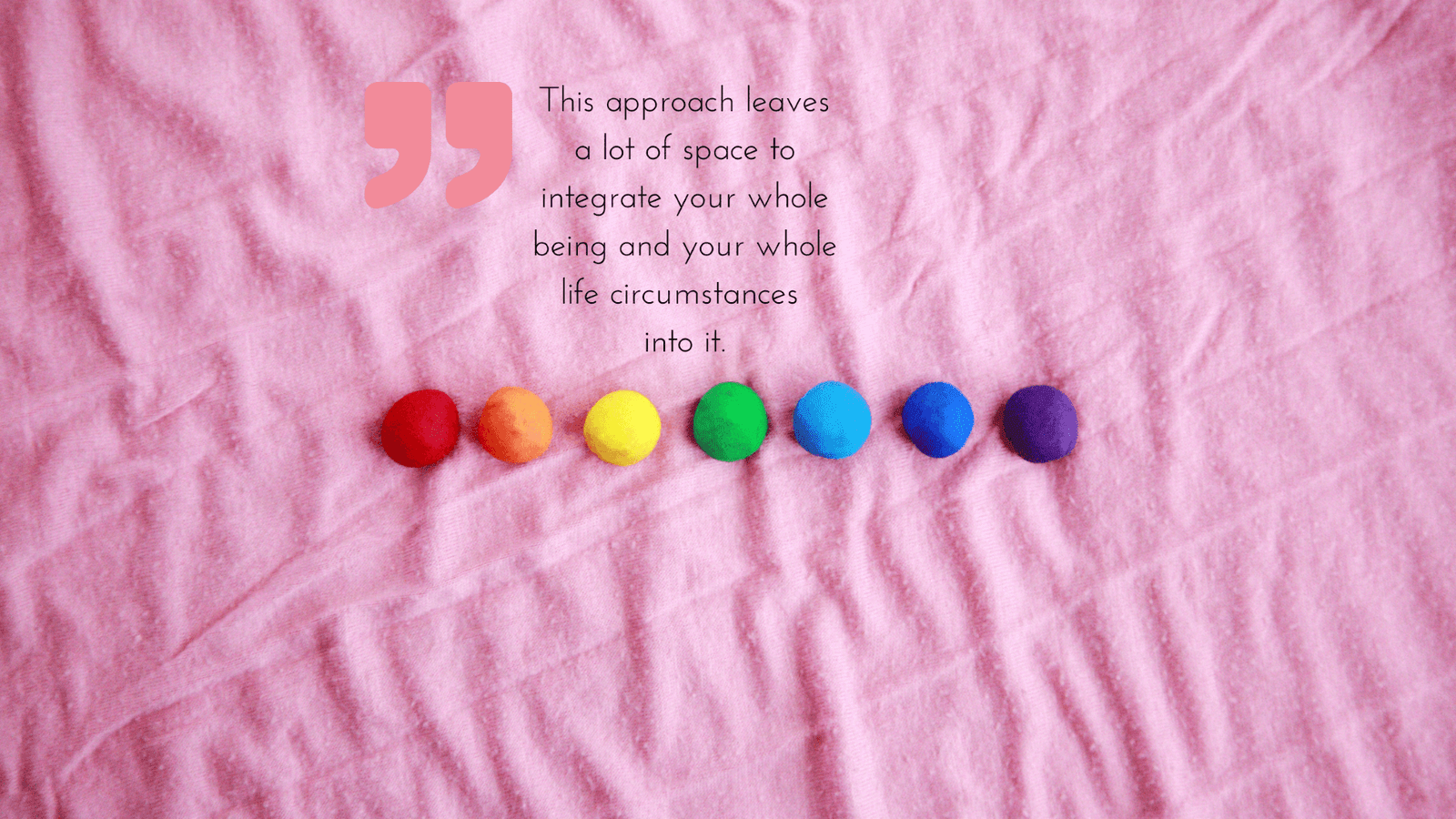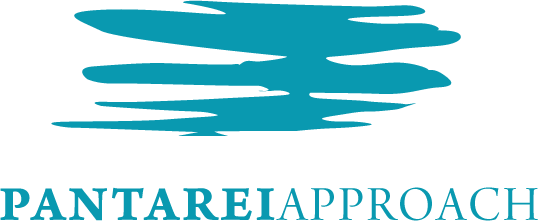
Lara, Pantarei Approach Client
ON ANOTHER LEVEL
Lara (she/her) not only likes to connect with others but to find ways to work in solidarity with them. Making changes in society motivates her professionally and personally. At 30, she is currently working in the Spinnboden lesbian archives and she also works on projects involving queer, feminist politics. Her knowledge of art history and gender studies shapes her, and she explains that she is critical towards power relations in institutions, social inequalities, and structural problems, like sexism, racism, homophobia, and transphobia.
Like for many in Berlin, it is not always easy to make a living, but Lara states how lucky she feels to work in the archives. It provides stability, is political, and offers the opportunity to bring her knowledge to work, in an anti-capitalist, leftist space. Lara is a client of Diana, who spoke to us about activism and bodywork earlier this month. “I am happy that I found Diana. She is such a cool and wonderful practitioner. I have a very warm feeling towards her and her approach,” Lara revealed.
Including the Body
What motivated you to try the Pantarei Approach?
“I did psychotherapy for 5-6 years, due to anxiety and panic attacks. I was depressed and not feeling an agent of my own life, afraid to go outside and connect with other people. Attempting the more medical approach to therapy which is paid for by insurance, I tried individual and group therapy, but I was still dealing with certain topics and wanted to try a more somatic approach. I wanted to work with an openly queer and political practitioner.
In addition, I wanted it to be a different setting than the previous ones I’ve encountered. I heard about Diana through a recommendation. And I was interested because in my teenage years I struggled with anorexia. I was interested in how these struggles in a homophobic, sexist society can be looked at in a somatic way. You are always checking your body in our society and I wanted to go to these topics on another level that included the body.”

Can you share your experience of a session?
“It was very personal because the connection with Diana on a political and queer level was really present. I approached it not like a client-therapist relationship, but more like I was meeting a professional in the queer community. In the beginning, we spoke for 10-15 minutes, and then we went to include the body on the bodywork table. We always started slowly with the bodywork. It would usually get more intense and then it would end more as a fade-out. Then we had a short summary afterwards.”
What has changed in your life due to receiving sessions?
“What changed in my life, is that the shame I felt for my body has decreased. I am no longer in agony and I can openly connect with reactions and approach or express feelings with my body in a way in which I feel comfortable. Also in intimate relationships— I can explain how I feel. I can make connections between my physical and mental experiences. So if I am tired, I know it is not only my body that is tired, but that I have a lot of things going on and tiredness is one response.”
Including the body in a personal process is what draws many to the Pantarei Approach. People live their lives with their body, and their body is where new patterns and changes can be made. Their body is also what connects their private, professional, cultural, and political lives. In a Pantarei session, a practitioner works with their clients to incorporate all aspects so they can feel in control of their lives and move in ways that feel right for them without feeling stuck.

No Limitations
How would you describe the Pantarei Approach in your words?
“This approach is really focused on combining the mental and the physical. What is unique is to approach things in your life not just on a rational basis, but from a bodily sense. This approach leaves a lot of space to integrate your whole being and your whole life circumstances into it.”
What has Diana provided you with?
“With Diana I could integrate my whole political being and activist thoughts — the whole world and my whole self. Sessions weren’t focused on that ‘I have to get better’. But instead, how do I find resources for my political work? And how can I manage to get along with complex thoughts without shaming myself? This was unique. I never had a therapy space where the practitioner was also ‘woke’ about political and queer discussions on a structural level. So I could talk about those things to Diana and she knew what I meant. She didn’t try to separate but tried to integrate everything and this was my wish as well— how to act responsibly and also feel ok in my life. This approach made that possible because there were no limitations in how I had to be, or how we had to work in a session.”

Final thoughts?
“It is quite important to work with people from your community. I would like very much to be able to recommend people. I hope one day these types of practices would be recognized by health insurance. This is missing in the system. It would be quite wonderful if somatic work like Pantarei would be funded for everyone.”
Written by Mike O’Connor 


